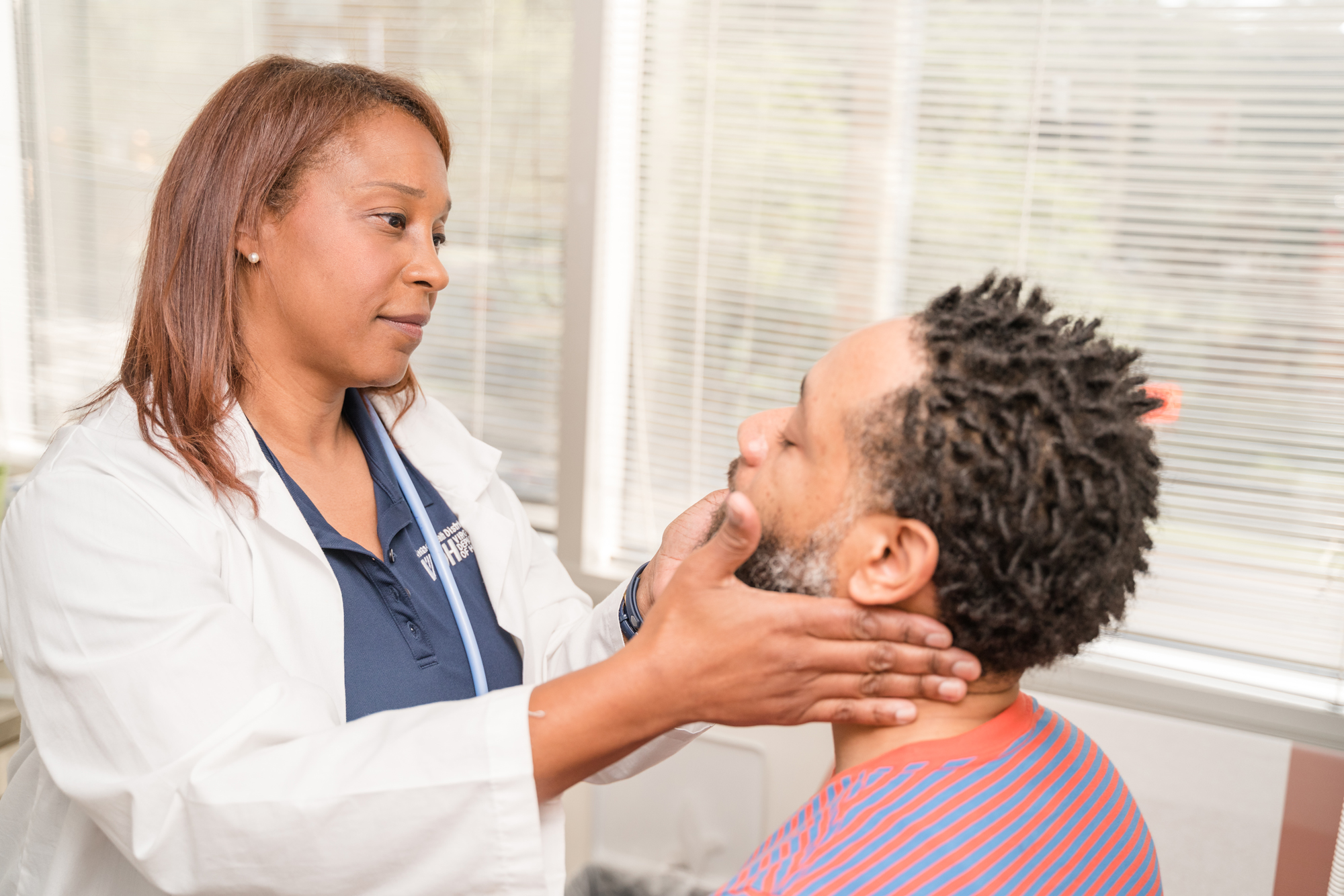Adriana Glenn, Ph.D., RN, was inspired to become a nurse after watching “Julia,” a late 1960’s sitcom starring Diahann Carroll. “Julia” was notable for being one of the first depictions of an African American woman in a professional role as a nurse. “I knew from a very young age that I wanted to be a nurse,” she said. “I knew I wanted to help people.”
Dr. Glenn’s research and practice has focused on marginalized, underserved and young populations. She has worked as a family nurse practitioner for 30 years and serves as a nurse practitioner for the Virginia Department of Health in Alexandria, Va. She’s also an assistant professor at GW Nursing and a legal nurse consultant for the Department of Health, rendering opinions related to the delivery of nursing and other health care services.
At the Department of Health, Dr. Glenn uses her experience in the care of patients from underserved populations. “I always think of myself as an RN first. One of the great things about working in academia is that you can still practice,” she said. She currently practices once a week in the postpartum clinic, which serves mainly women with low incomes. “I thought I could really help to empower women. We live in a society where, because of social media and advertising, women think they should bounce right back after having a baby,” she said. “Oftentimes, in my experience, women with limited resources feel powerless and have unrealistic expectations about what motherhood entails and what makes a great mom. These unrealistic expectations range from body weight after delivery, to the healing process after a C-section, to how to navigate personal time for themselves.” Dr. Glenn believes that a big part of providing care is to educate, and she takes the opportunity to engage her patients. “We also have time to discuss how to create meaningful family time. [In private practice], we often do not get the time to provide adequate health education.”
She has also provided care to LGBTQ populations at the clinic’s Rainbow Tuesdays. Dr. Glenn is excited to serve all of these different groups, who are marginalized, underserved and often from low-income families. “Serving a variety of populations keeps me ‘on my game’ in my professional clinical practice,” she said. “For example, when working Rainbow Tuesdays, screening for STIs is very important, as is health education on safer sexual practices. However, it is critical to make sure to address the mental health piece, as the LGBTQ population has a higher incidence of suicide and depression than other groups, and the added stressors of their lifestyle can exacerbate what could be perceived as a common condition in the general population of people who do not identify as LGBTQ.”
In choosing to work in public health, Dr. Glenn shares her expertise with struggling populations. “I love serving those who need a voice. Everyone wants to feel valued and appreciated,” Dr. Glenn stated. “I can connect with people, understand their life struggles and provide them with the knowledge they need regarding their health and the hope they desire for a better life.”


